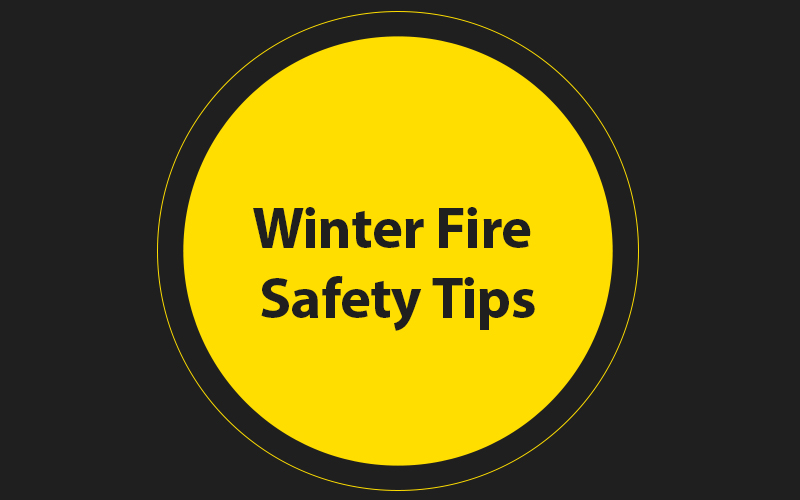With winter here, the Emergency Services Department would like to proactively share important safety hints when using heating appliances (such as gas and electric heaters) to keep warm during the looming cold season.
The Emergency Services has observed through experience that many fires in businesses, houses, outbuildings and shacks in winter are caused by negligence from people occupying the property. An ignorant or careless mistake can start a fire that can get out of control quickly. It is thus important to know the correct number to call for urgent professional help.
The following safety measures must be adhered to:
Liquefied petroleum gas (LP gas) is a flexible, fast, clean, portable and powerful energy in a cylinder and can be used for cooking, heating, refrigeration and lighting.
Gas cylinders used in the everyday environment range from 3 kg to 48 kg. The law dictates that a maximum of 19 kg is allowed to be kept inside a house and a maximum of 9 kg in a flat.
SANS 10087 part 1 of 2013 describes the requirements for the handling, storage, distribution and maintenance of LP gas in domestic, commercial and industrial installations. Section 5.2.2.1(a, b) of this standard, describes the indoor location required for LP gas containers.
Cylinders larger than 19 kg must be stored outside. For safety purposes, a lockable steel cage is recommended. The cage should have signage indicating that gas is flammable and that no open flames may be near the cage.
Any fixed installation may only be undertaken by a properly trained and registered LP gas installer. The installer must advise the user on the safe use of the appliance and issue a Certificate of Conformity (CoC) on completion of the installation. (See www.saqccgas.co.za for a list of registered installers.)
Portable gas heaters are popular for household use and extreme caution must be exercised once it is securely connected to a gas bottle and ready for use. All extra gas cylinders must be stored outside the house and inside a ventilated cage. Emergency personnel attending to any fire incident must be informed of any cylinders on your premises.
- Always follow the manufacturer’s guidelines carefully.
- Always turn your heater off at the cylinder valve before going to bed or leaving the room or your property.
- Ensure all the components of your unit are well maintained, e.g. the heater, regulator, hose and hose connection.
- When changing the cylinder, first close the valve and then remove the regulator. Always check that the rubber “O-ring” (washer) on the end of the regulator is not worn, brittle or damaged in any way. Replace it at any sign of damage.
- Ensure the “O-ring” is still located on the end of the regulator, as it sometimes gets stuck in the cylinder valve.
- Test any gas appliance or heater for possible leaks by spraying a soap-water solution on all connections. Leaks will show in the form of a bubble and must be repaired immediately.
- Do not use aerosols or flammable, cleaning liquids or sprays close to the heater.
- Avoid sitting or standing too close to your heater – a safe distance would be 1 metre away.
- Always ensure that the room in use is well ventilated so that there is a continuous supply of fresh air (oxygen). If it becomes stuffy, open the windows and doors to allow fresh air in immediately.
- Ensure that your heater is positioned away from any flammable materials and is not blocking any escape route.
- Never place clothes or other items on your heater.
- Do not move your unit while it is in use.
- Educate children on the safe use of gas appliances and never leave them without supervision in a room where an appliance is located.
- If you suspect a gas leak, turn off the gas cylinder immediately and, if possible, take the heater outside.
- Do not re-use the heater until it has been checked by a reputable LP gas dealer.
- Only use LP gas appliances that are permitted to be sold in South Africa. A complete list is available on lpgas.co.za. Click on the Safety button and then on find a Safe Appliance.
- For more information on the safe use of LP gas, visit the website of the LPGas Safety Association (lpgas.co.za) or contact the association on 011 886 9702.
Safety at home
- Use appliances that carry the SABS mark of approval.
- Unplug electrical appliances if they are not going to be used for a long time.
- Use electric heaters with great caution and unplug them before you go to sleep or leave the area where they are used.
- Place heaters away from materials such as curtains, bedding, clothing and wooden furniture and ensure adult supervision if children are around.
- Switch electric blankets off at the wall plug once you leave the bed.
- Have electric cables installed by a professional electrician to minimise the risk of fire.
- Never run electric cables under carpets, as this might cause a short and start a fire.
- Turn off all electrical appliances if a power failure occurs in your area.
- Use paraffin appliances in a well-ventilated area and switch them off after using them.
- Store flammable liquids in a cool, ventilated area to avoid explosions.
- Ensure that the chimney in your house is cleaned regularly and covered with a safety shield.
- Install smoke alarms in the house and have a fire extinguisher at hand for use in an emergency.
- Avoid having unnecessary waste or compost heaps if your home will be left unattended for a long time.
- Extinguish an open fire before you leave it.
- Do escape drills so that everyone is well prepared in an emergency.
- Make sure that emergency numbers are easily accessible.
- Take special care when you use open fires for braaiing or heating and extinguish all fires once you leave the area.
Source: https://showme.co.za
24/7 Security Services – info@24-7security.co.za / 011 444 2237

